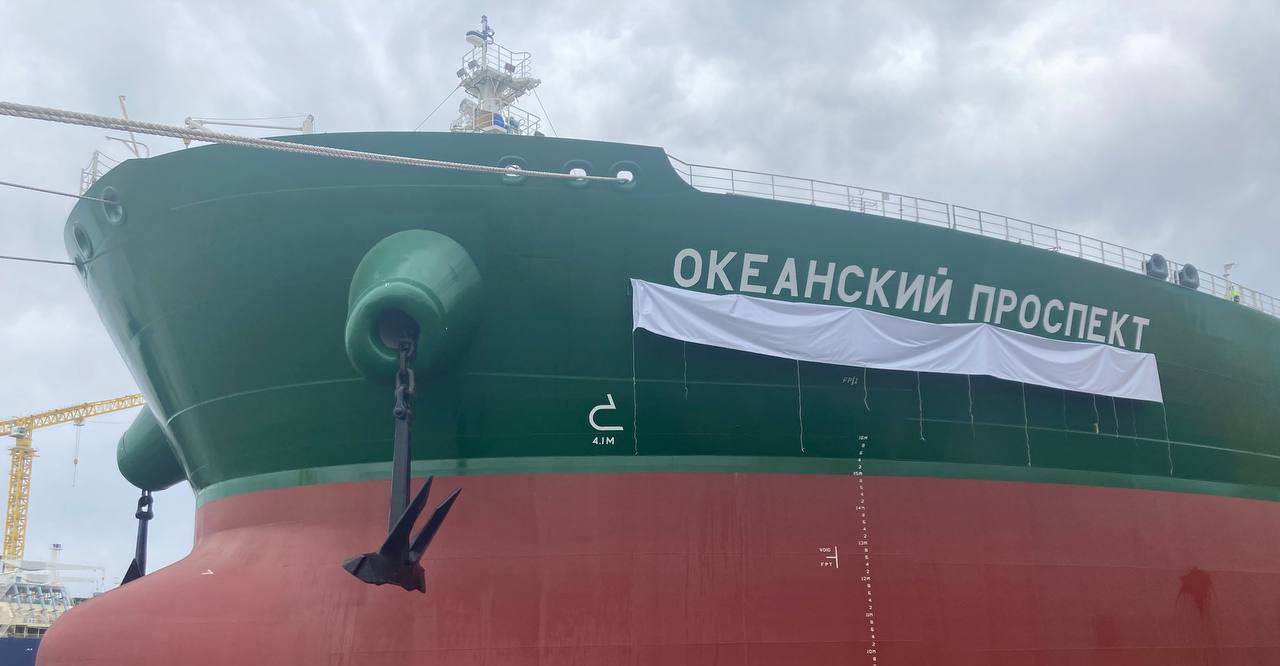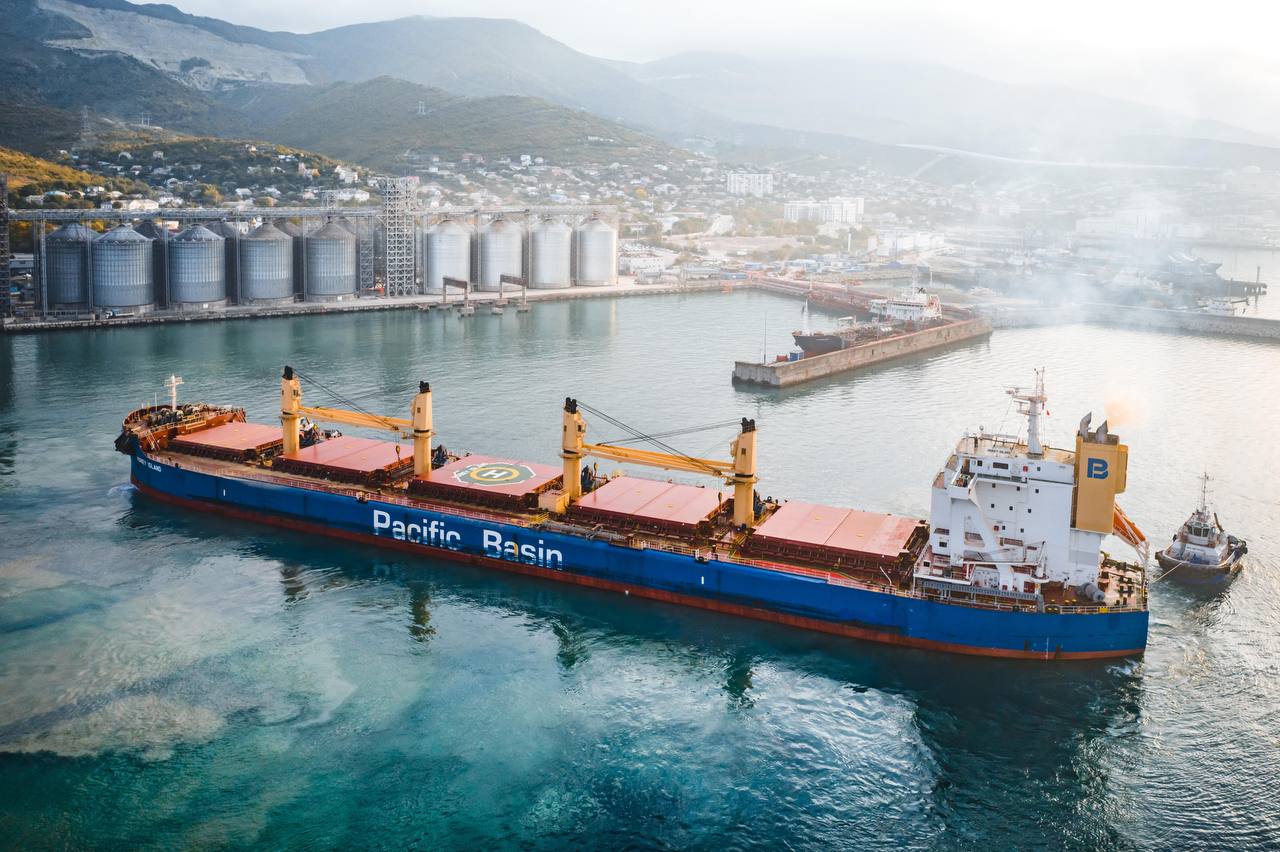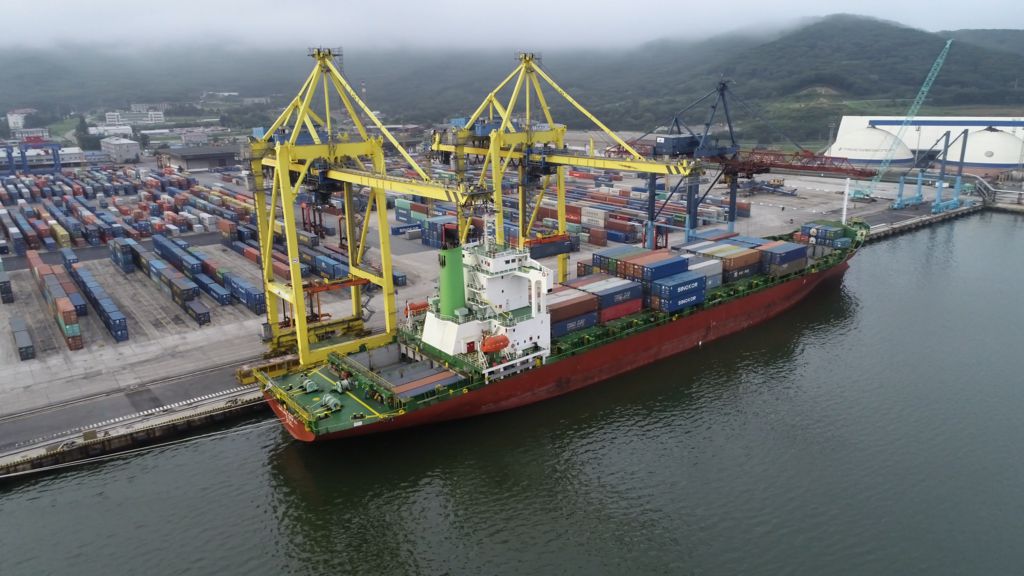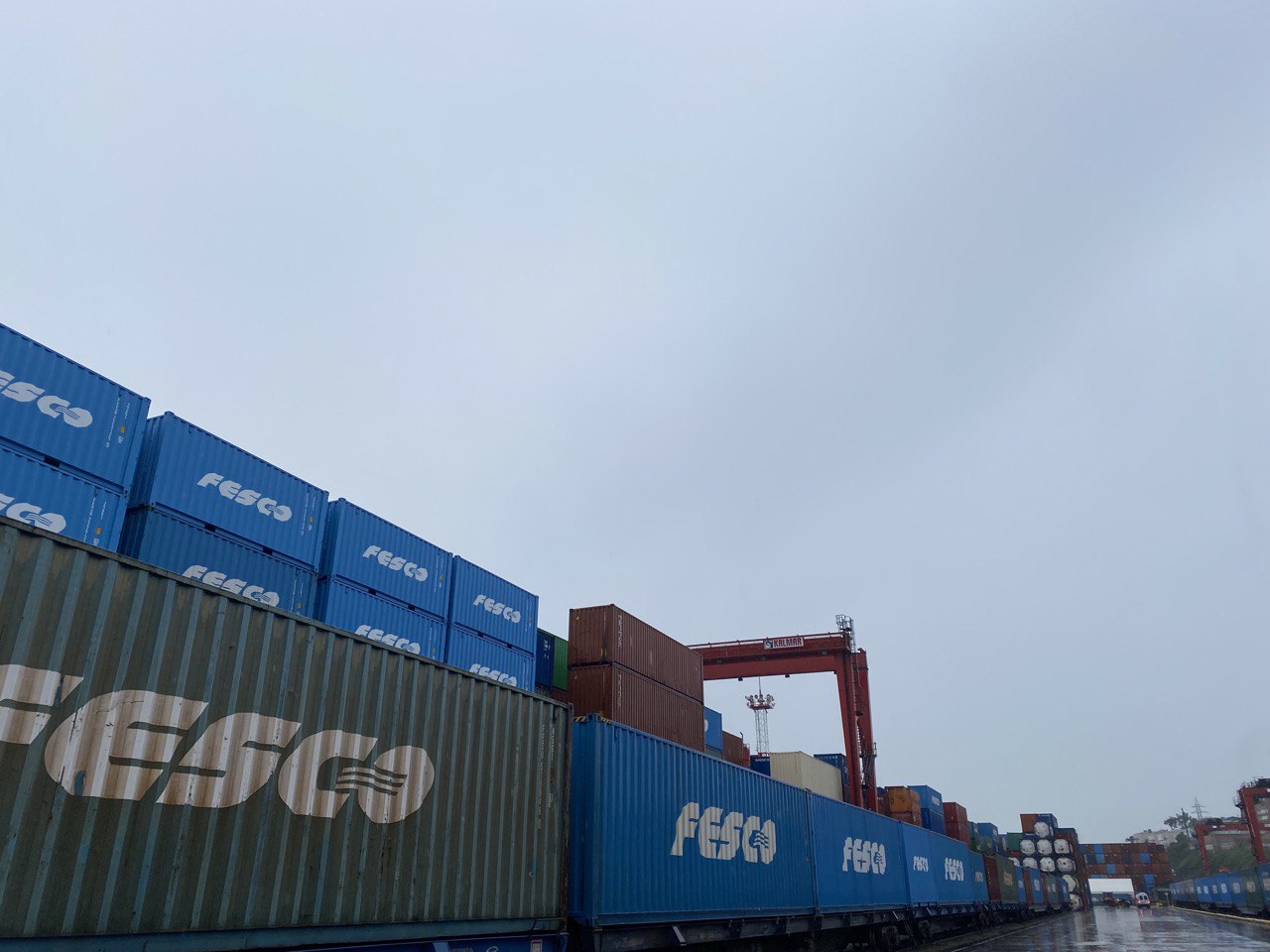
The Eastern Economic Forum in Vladivostok has probably outplayed the Saint-Petersburg Economic Forum this year in view of cargo flows turning eastwards. When speaking at the plenary session, Russian President Vladimir Putin called it a “logistics boom”. The focus is still on the development of the North-South ITC and the Azov-Black Sea Basin ports. Operation of terminals and shipping companies in the peak market has been also covered by the business.
The total cargo of Russian seaports has only slightly decreased over the seven months of this year: it has remained at the same level as a year earlier, which is about 482 million tonnes of cargo. Last year there were 483 million, Russian President Vladimir Putin said at the Eastern Economic Forum plenary session held on September 7. According to him, that means the failure to isolate Russia.
“Over the past years Russia has implemented big plans for the development of transport infrastructure, railways and roads, seaports and pipelines. These timely decisions have made it possible for businesses to quickly rebuild logistics in today's conditions, and redirect cargo flows to those countries that are ready and willing to trade with Russia,” said Vladimir Putin.
According to the President, it is important to load Russian shipyards to ensure further growth.

“Far Eastern ports are seeing a real logistics boom. The volume of cargo transhipment and container handling is such that specialists are working 24/7 to handle the workload,” he emphasized adding that “in addition to our plans to expand transport corridors, it is important to provide Russian shipyards with orders for modern high-quality tankers, dry cargo ships and container vessels, including ice-class ships, for the further expansion of the Northern Sea Route as a potent transport corridor of national and global importance with year-round navigation”.
On September 6, Evgeniy Ditrikh, Chief Executive Officer of State Transport Leasing Company (GTLK) presented the programme for leasing of sea and river ships until 2030. According to the plan covers over 45 mid-size and large-size ships as well as over 50 small-size ships of mixed river/sea class including Arctic class ones.
Russia’s demand for construction of new ships by 2035 increased to 1,500 units, according to Victor Yevtukhov, Deputy Minister of Industry and Trade of the Russian Federation. He says the previous plan for construction of civil ships and equipment was based on the demand until 2035 estimated at slightly over 1,000 units. However, the Ministry of Transport and the Ministry of Agriculture have declared the need for additional units. The scope of capital investments needed for modernization of Russian shipyards so that they could build large ships is estimated at RUB 400-500 billion minimum, said Victor Yevtukhov adding that only Far Eastern shipyard Zvezda is capable of building such ships today. Dry dock of Severnaya Verf shipyard is not to be delivered before 2023. The third ship of that kind can appear on the Kotlin island, according to earlier statements of Rosatom.
However, the business shows little interest in construction of specialized fleet in the Russian Federation so far. Transport companies having been in difficulties with freight for over half a year due to a halt of calls to Russia amid sanctions make no public statements on preparing for construction of container ships or bulkers so far. IAA PortNews sources say there are no projects of that kind in Russia with potential contracts running the risk of disruption.
Fesco has announced its plan to expand the company’s fleet with three ships to be acquired in the secondary market by the end of 2022. As Arkady Korostelyov, Chairman of Fesco’s executive board, told journalists at the Eastern Economic Forum, the vessels will be about 10 years old of 1-2 thousand TEU in capacity. The company is not looking into construction of the required ships so far.

In August, Delo Group expanded its activities with a new business division having acquired Sakhalin Shipping Company (SASCO). Now, the fleet of Delo Group fleet numbers 25 ships including chartered ones, according to Dmitry Pankov, General Director of Delo Management Company. He says the company started chartering ships in April 2022 adding that charter agreements are signed for short periods or for single shipments. The longest agreement has been signed for a year, Dmitry Pankov said when answering a question of IAA PortNews. The cost of chartering is about $15,000-40,000 per day.
According to Dmitry Pankov, the group is currently planning the layout of its ships in the basins of Russia. Besides, it is interested in a container ship of 1,800вАТ3,000 TEU in capacity.
Meanwhile, loading of Fesco’s Commercial Port of Vladivostok and Global Ports’ Vostochnaya Stevedoring Company is about 100%. They need expansion container storage yards (dry terminals).
“Containers are already stacked in six layers which means that we should facilitate implementation of our investment programme in the port and expand our container storage facilities,” Arkady Korostelyov told journalists in Vladivostok.

On the other hand, handling of containers has almost stopped in the North-West, according to Dmitry Pankov. In summer, container throughput of Global Ports’ north-western terminals (Petrolesport and First Container Terminal) fell by about 80%.
“We replace containers with non-containerized cargo — fertilizers, metal scrap, equipment,” he said.
At the same time, southern ports of Russia which increased their throughput in the 7-month period of 2022 by 0.3% to 147.6 million tonnes are not to be serviced by the fleet of Russian companies so far. The programme for construction of bulkers the deficit of which was acknowledged by the market players has not been announced at the Eastern Economic Forum.
Experts say the share of Russian-flagged ships involved in transportation of Russia’s foreign trade cargo is only an 2%. Although availability of national commercial fleet is of the utmost importance amid the sanctions and rejection of large operators to work in Russia, there are no active transactions in the shipping market’s public segment so far. The situation is aggravated by the shortage of ships in the international market and the problems concerning acquisition of ships from countries other than Turkey an India, say the sources of PortNews.
More industry-related content is available on our social media pages: YouTube, Telegram, Twitter, Yandex Zen




